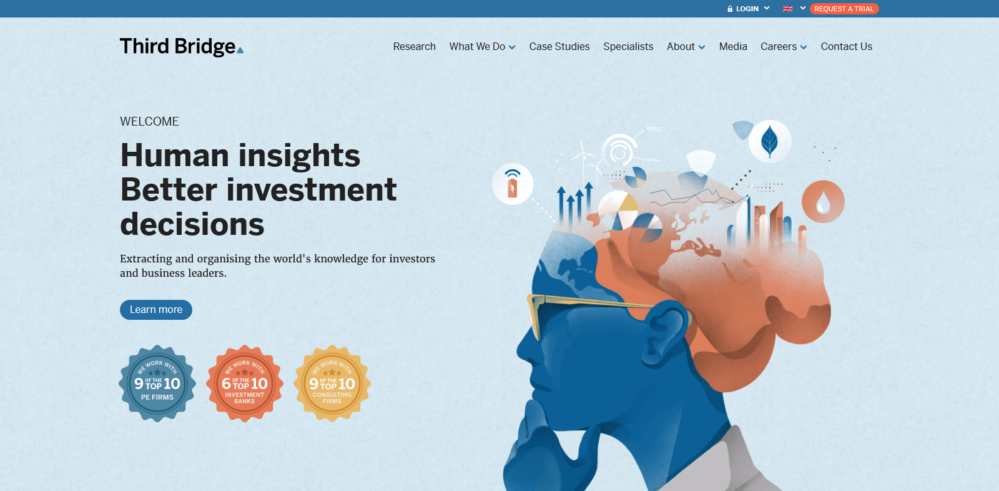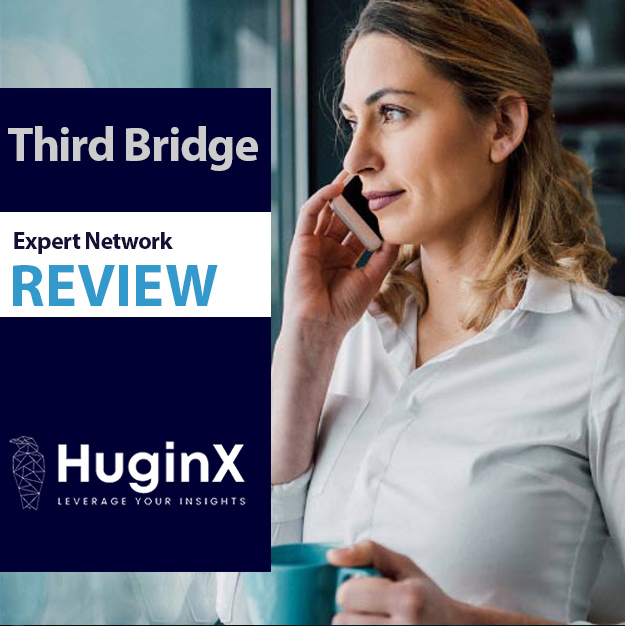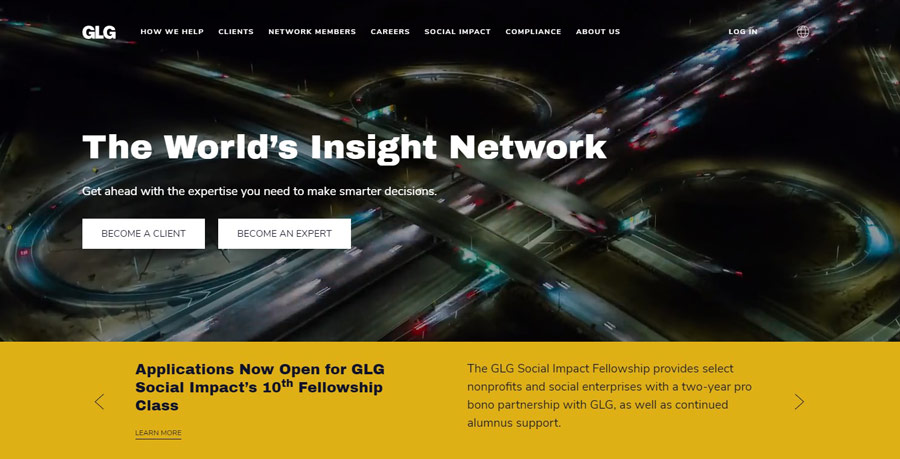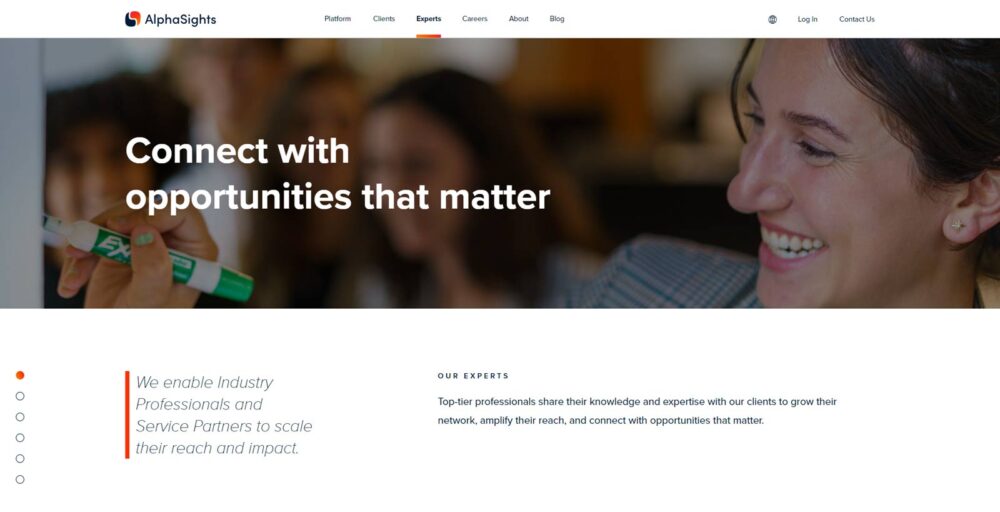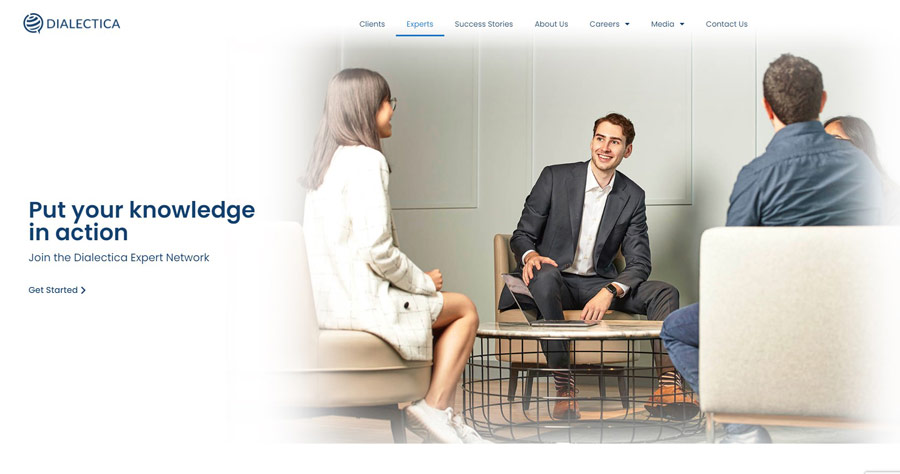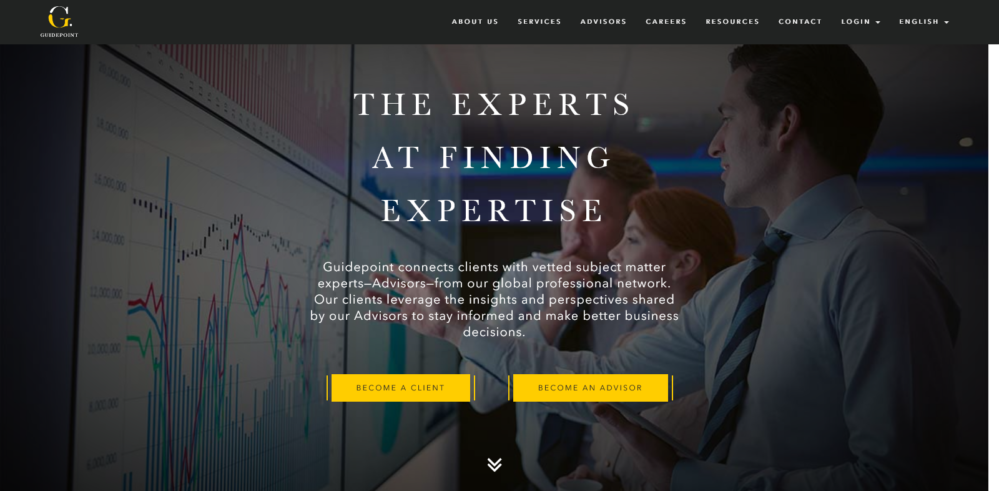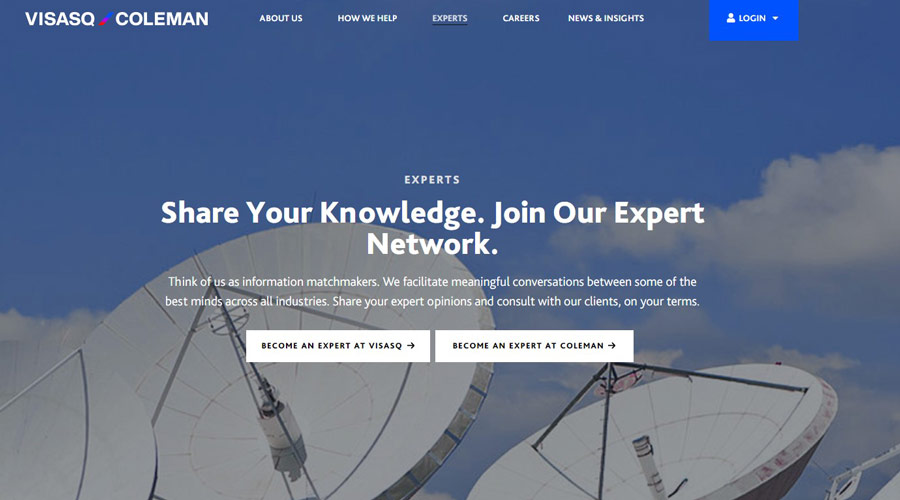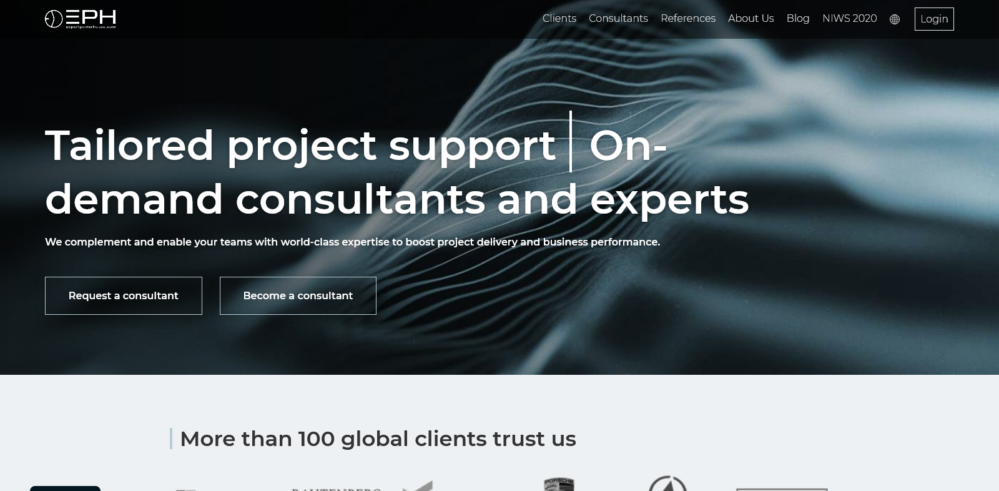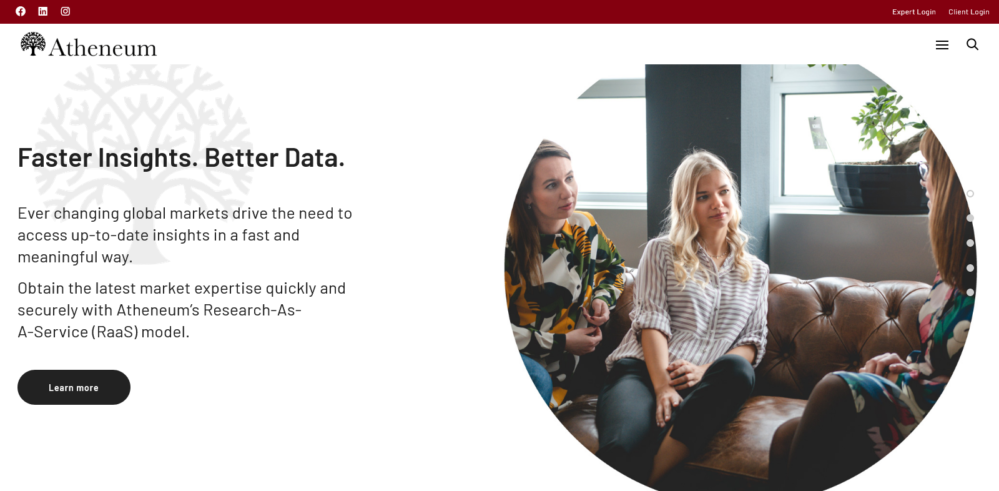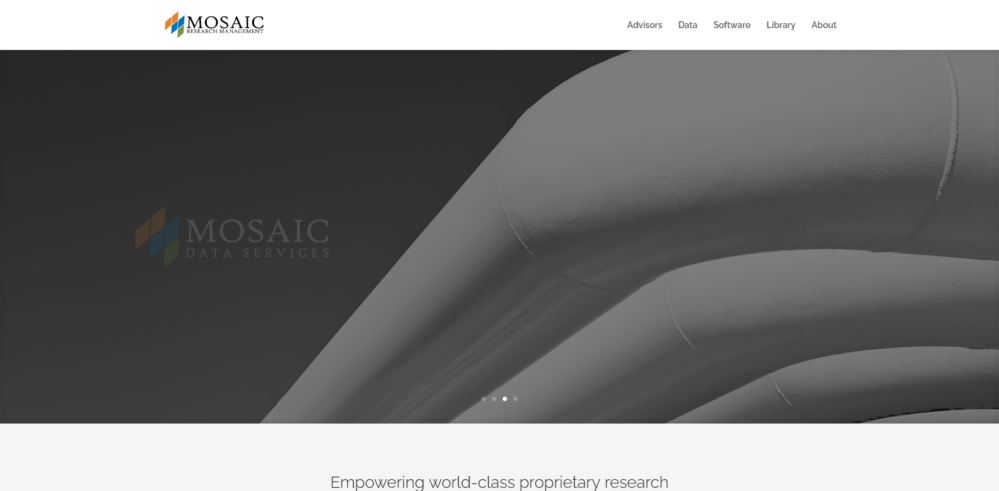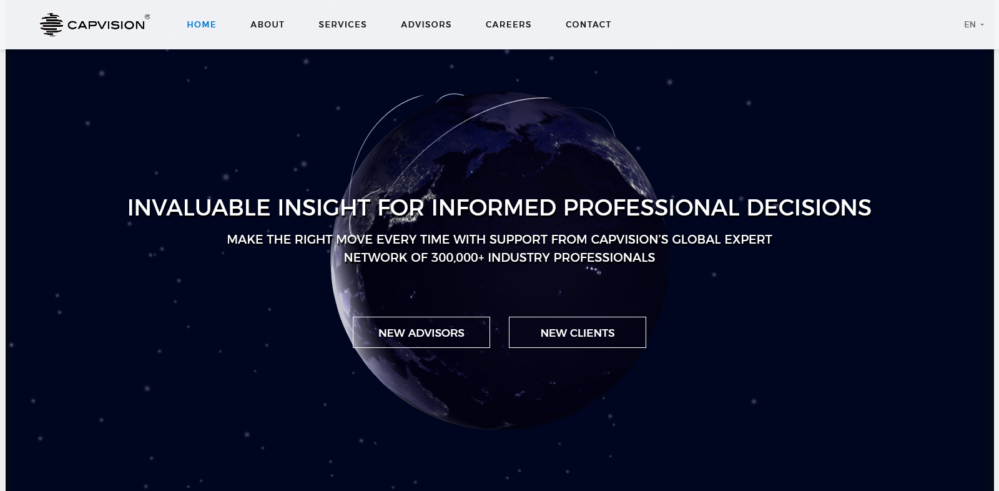Third Bridge Review
Third Bridge is a global expert network that connects businesses and investors with industry experts to help them make informed decisions. If you’re considering signing up as an expert, here’s a closer look at what you can expect from the platform.
Third Bridge’s aim is to gather and distil market data, providing its clients with a competitive edge. Or as they put it on their website:
“Third Bridge hires and retains the best talent in our mission to democratise the world’s human insights and upend the traditional research model.”
In terms of its size, Third Bridge is considered a top global player alongside firms such as GLG, AlphaSights, Guidepoint and VisasQ/Coleman.
What’s the concept?
Expert network companies make money by charging clients a fee for access to experts with specialized knowledge and expertise. These fees can vary depending on the level of expertise required and the length of the consultation.
While Third Bridge like most expert networks boasts of advisors being able to set their own rates, you have no guarantee that you’ll get a fair share of the fee charged to the end client.
Most consultants set an average industry-standard rate for all their projects, while expert networks charge clients on an individual project basis. This creates a discrepancy, and experts might only get a 10%-20% share of what the client is paying.
This can be seen as unfair compensation for the experts, who are expected to provide their valuable insights and knowledge to the client. While expert network companies may argue that they need to keep a significant portion of the fee to cover their own expenses and make a profit, it also raises questions about the ethics and transparency of the industry.
In addition to charging clients for access to experts, some expert network companies also generate revenue by offering value-added services such as market research, due diligence, and industry analysis. These services can be offered separately or bundled with expert consultations, providing an additional revenue stream for the company.
Signing up
If you haven’t been contacted on LinkedIn yet, you can go to their website and apply to become a network expert member.
- Register: with your basic details on their website.
- Submit resume: Upload your CV and provide your professional history.
- Set your rate: Set your ideal hourly consulting rate.
Having an up-to-date resume and an hourly consulting rate in mind speeds up the process. Once you have completed the three steps above, you must wait for your first project invitation.
If Third Bridge selects you to participate in a project, you’ll receive an invitation for pre-screening. Clients are usually sending out RFQs (requests for quotations) to multiple companies at the same time to get the best price. In this way, time is of the essence, and the expert network will frequently try to hunt down specialists as fast as possible to impress their clients.
Landing gigs
Steps to start earning money once you’re signed up:
- Project invitation: Be quick to answer the invitation you will receive via email, text message, or phone.
- Pre-screening: Deliver good answers to the pre-screening questions
- Compliance: Take part in the compliance training and answer the related questions.
- Rate: Confirm the hourly consulting rate you will charge.
- Timeslot: Submit a few different options in terms of availability.
- Confirmation: When you’re good to go, you’ll receive a final confirmation of the time of the meeting.
Also, keep in mind that experts are rated by the client after each call ends. In this way, it’s really important that you give a good impression on your first interactions, to build up a high score.
Calls can be intense
Remember that participating in an expert network call can be exhausting. The call will feel much more intense than an average company conference call. While the tone of the conversation is friendly, you’ll have to tackle one hour of open-ended questions on complex subjects.
The person leading the call on the client side is usually an associate or consultant eager to impress the more senior staff, silently listening in on the conference. Also, remember that the client is paying north of $1000 per hour for your time and wants value from the exchange.
Volatile workload
From an expert perspective, it would be best to have a regular stream of project invitations, but invitations will fluctuate wildly. Especially during significant industry changes, such as when a large company is up for sale or in the aftermath of a substantial merger, you’ll see a surge of invitations from expert networks.
How to set your rate
Entering the world of being an expert can prove to be lucrative, as initial rates range from $75 to $150 per hour, with senior experts making $200 to $300 per hour.
The top-tier experts have been known to demand a whopping $500 or more per hour. Third Bridge operates on a pay-per-minute model, where you’ll receive half the hourly rate for a 30-minute call.
However, the clock keeps ticking if you exceed the one-hour mark. Unlike survey sites, expert networks like Third Bridge promptly pay after the consultation through cash transfers to bank accounts.
Actual time vs paid time you are consulting
At first glance, the hourly rate consulting with Third Bridge can seem well-paid. However, keep in mind the extra time spent on additional “administrative” tasks that you don’t get paid for. Additional tasks include:
- Pre-screening questions: Answering these questions can often be quite detailed and take around 10 minutes. And there’s no guarantee you’ll qualify.
- Compliance: Conducting compliance training and -questions can be tedious.
- Providing professional experience: Keeping your resume up to date can take time.
- Payment: Setting up your payment options and submitting your invoice is streamlined but not fully automated.
- Preparing for the call: Finding a quiet spot, logging on a couple of minutes beforehand and creating a buffer in your calendar take time and effort.
Your net hourly rate taking into account admin tasks will be considerably lower than the billable rate. We recommend using a time-tracking app to check how much time you spend calculating your actual earnings per hour working with an expert network.
Third Bridge B2B surveys
Third Bridge can also ask network members to take part in paid surveys. Surveys are targeted towards professional topics and usually take from 10 to 20 minutes with payments starting at ~$40.
The benefit of taking B2B surveys is that you can do it whenever you have time. They are also well paid in comparison with consumer surveys.
The biggest drawback of taking surveys is that it can be hard to qualify. If you don’t meet the screening criteria it will be a waste of time, and you’ll get kicked out of the survey without getting paid.
Compliance training and sensitive information
Managing sensitive information is a crucial aspect of providing consulting services to expert networks. As an expert, it’s important to avoid conflicts of interest and stear clear of sharing confidential information obtained through current or former employers.
Third Bridge requires all participants in a call to adhere to ethical and legal rules and limitations. As a network member, you will undergo compliance training and can always reach out to the member service team for guidance.
While there are no strict guidelines on how a conversation should proceed, the client sets the tone by sharing their situation and asking questions. As the expert, your role is to listen attentively and provide valuable insights and responses.
Personal data
Most of the calls you’ll have through an expert network will be on potentially sensitive topics. As an expert, it’s important to understand how the information you provide on a call will be shared.
Will I remain anonymous?
Most expert networks, including Third Bridge, will, as a rule, run their 1:1 consultation calls on a single-blinded basis. This means that the advisor will not know whom they are consulting, but the client will know who the expert is. This setup’s main benefit is protecting the client regarding sensitive situations, such as M&A activities. Also, it makes it difficult for the advisor and client to “cut the middleman” and follow up without the expert network continuing to facilitate the contact.
So in other words: You will not remain anonymous.
What information will be shared?
Third Bridge is in the business of reselling your knowledge and information as a provider of insights. It is important to consider that much of the information you provide as a network expert will be shared with Third Bridge’s clients.
From Third Bridge’s privacy policy: “We may disclose the following personal information about you to clients who may wish to consult with you through Engagements: your biographical information, information in respect of the number of times you have previously consulted with our clients and/or information in respect of feedback received in respect of those consultations.”
In other words: You can assume that your bio, biography and expert score will be displayed to a large number of Third Bridge’s clients.
Calls are recorded and transcribed
ThirdBridge will ask for your consent for the call to be recorded and transcribed.
From Third Bridge’s privacy policy:
“Should you agree to take part in an interview which may be recorded or transcribed for our content portal, you consent to us displaying your name and biographical information on our content portal in order to attribute that content to you.”
From an expert’s perspective, the downside of calls being recorded and transcribed is the lack of visibility of where their information ends up. While expert network companies have strict policies on who can access the recordings and transcriptions, it’s still possible for the information to end up in the wrong hands. This lack of anonymity can be concerning for experts who want to maintain their confidentiality and privacy.
Experts may feel uncomfortable sharing sensitive information on a recorded call without knowing exactly where it will end up and who will have access to it.
Room for improvement
While Third Bridge’s privacy policy seems to tick all the boxes, it would be helpful if they could provide a summary of how data is shared. After all, most people don’t bother to read through lengthy privacy policy documents with difficult wording. By providing a clear and accessible summary of its privacy policy, Third Bridge could help build trust with its experts and demonstrate its commitment to protecting their data.
Is it worth the time and effort?
In our experience, one of the key advantages of working with Third Bridge is its friendly and service-minded associates. They really make an effort for the process to work as smoothly as possible for the experts, which makes you feel valued.
Another positive aspect of Third Bridge is the large volume of projects, which boosts the chances of qualifying for a project focused on your niche or area of expertise. This can increase the likelihood of receiving calls that are both relevant and interesting to you. Additionally, Third Bridge has a reputation for being a reputable and established expert network, which may provides a sense of security for experts looking to work with a trusted company.
However, there are also downsides to using Third Bridge.
The advisor portal can be frustrating to use when filling out your profile information due to its unintuitive design. Furthermore, unlike other networks that provide a login, Third Bridge requires you to request a link that is sent to your email each time you want to access the portal. This can be time-consuming and inconvenient, making it harder to keep track of your profile and engagement history.
Also, unlike other networks such as GLG and Coleman, there is no interface for experts to have visibility and apply for new projects. All in all, Third Bridge seems a bit less technologically advanced than some of its competitors.
Last but not least, we wish that Thrid Bridge would take the extra step of summarising key points in their privacy policy, making it easier for experts in their network to understand how the information they provide will be shared. Especially when it comes to sharing sensitive information such as personal data, your biography, transcripts and recordings. Unless you take the time and effort to dig through the privacy policy, it’s really difficult to understand how your data is being treated.

